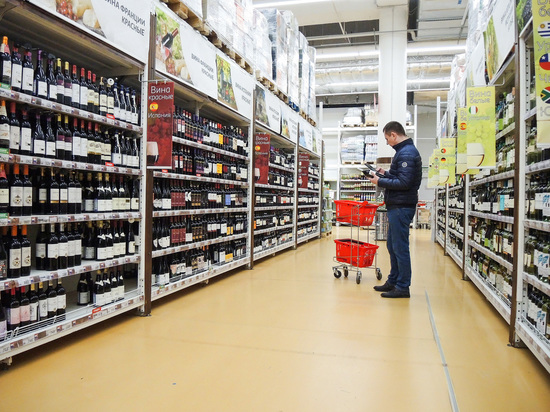Experts sentenced whiskey and Finnish vodka: they will disappear from the shelves
[ad_1]

In the spring of 2022, both the amount of alcohol consumed by Russians and the number of corresponding purchases increased. Obviously, many were in a hurry to hide with the help of alcohol from stress or to stock up. By the end of summer, the situation on the alcoholic beverages market had changed: today 48% of all Russian drinkers prefer strong drinks, wine and beer are losing popularity.
Meanwhile, experts warn that the situation with parallel imports is still unstable, so by the end of the year, up to half of the alcohol needs of cafes and restaurants will be covered by domestic alcohol.
According to a summary industry report of the Association of Beer Producers, compiled on the basis of statistics, over the past year, the share of strong alcohol consumption in Russia has increased by 3%. Now it accounts for 48.4% in the structure of consumption. This is the highest figure since 2017.
The share of beer consumption today is 38.6%, but the share of wine is only 11.5%, and these figures are also steadily declining.
According to market experts, an unpretentious Russian buyer today is drawn to the type of alcoholic beverages that can provide him with the desired effect (intoxication) for less money, so preference is increasingly given to vodka and cheap domestic cognacs.
As Pavel Shapkin, head of the National Alcohol Policy Development Center, noted in an interview with an MK correspondent, the majority of alcohol consumers in Russia are not gourmets at all.
“Let’s be frank: the lion’s share of Russian cognac “lovers” actually do not fully understand what cognac is and do not understand it. Most of the cognac that is consumed in Russia is the grassroots segment, and not at all premium or branded. It is more than realistic to replace it with the one produced in Georgia and Armenia,” explains Shapkin.
A slightly different situation develops around wine. Despite the fact that wines account for only 11.5% in the structure of alcohol consumption, the promotion of domestic winemaking is one of the most important areas of import substitution.
At the same time, it is important to understand that there is no direct ban on the import of European wines into Russia (unlike some brands of whiskey and liquors), so the decision to replace imported wine in a restaurant menu or on a store shelf with domestic wine is entirely a marketing ploy.
As Yegor Surikov, the sommelier of one of the largest Moscow wineries, said in an interview with an MK correspondent, Russian winemaking is developing rapidly, so it is absolutely incorrect to compare the current situation with the one that was 5-7 years ago.
– We have a prejudice against Russian wine, but it is necessary and possible to work with it. Moreover, interestingly, it is better to start “from the top”: according to my observations, sophisticated consumers who are well versed in wine agree to try Russian wine with great interest and willingness. Among our wines, you can find premium samples, but I would also not recommend neglecting Russian wine for those who are looking for wine, for example, for banquets. If you need to buy 5-10 bottles at once, you definitely need to pay attention to those made in the Krasnodar Territory: for 300-350 rubles you can find very good samples, – the expert explains.
According to Surikov, in Moscow restaurants today you can increasingly see Russian wines in the bar list (and not only as the cheapest item!), And some establishments even rely exclusively on domestic alcohol.
Surikov called sparkling wines of Russian production, as well as Russian autochthonous (unique) grape varieties – for example, Tsimlyansky black, dove, bastardo, citron magarach, Siberian – which grow only in certain regions, as a win-win option. At the same time, industry representatives themselves note that they only have to defeat consumer ignorance.
Even representatives of the hotel and restaurant business are rather poorly acquainted with Russian drinks, the media quote the words of the representative of one of the wineries, Peter Romanishin.
“When preparing a proposal for restaurants, we say that this is an analogue of Proseco, and this is similar to Nebiollo, etc. At the same time, the results of negotiations are always positive, and almost every tasting ends with an order,” said Petr Romanyshyn.
Meanwhile, market experts predict that by the end of this year, the share of domestic alcohol in the menu of cafes, restaurants and bars will reach 50% – this is not only about gourmet steps towards Russian wine, but also about attempts to replace cognac, whiskey, gin, rum and others. strong alcohol. For example, according to experts, Jack Daniel’s whiskey and Finlandia vodka will disappear from the shelves of Russian stores within three months, unless parallel imports are established – there will not be enough stocks for a longer period.
[ad_2]
Source link






